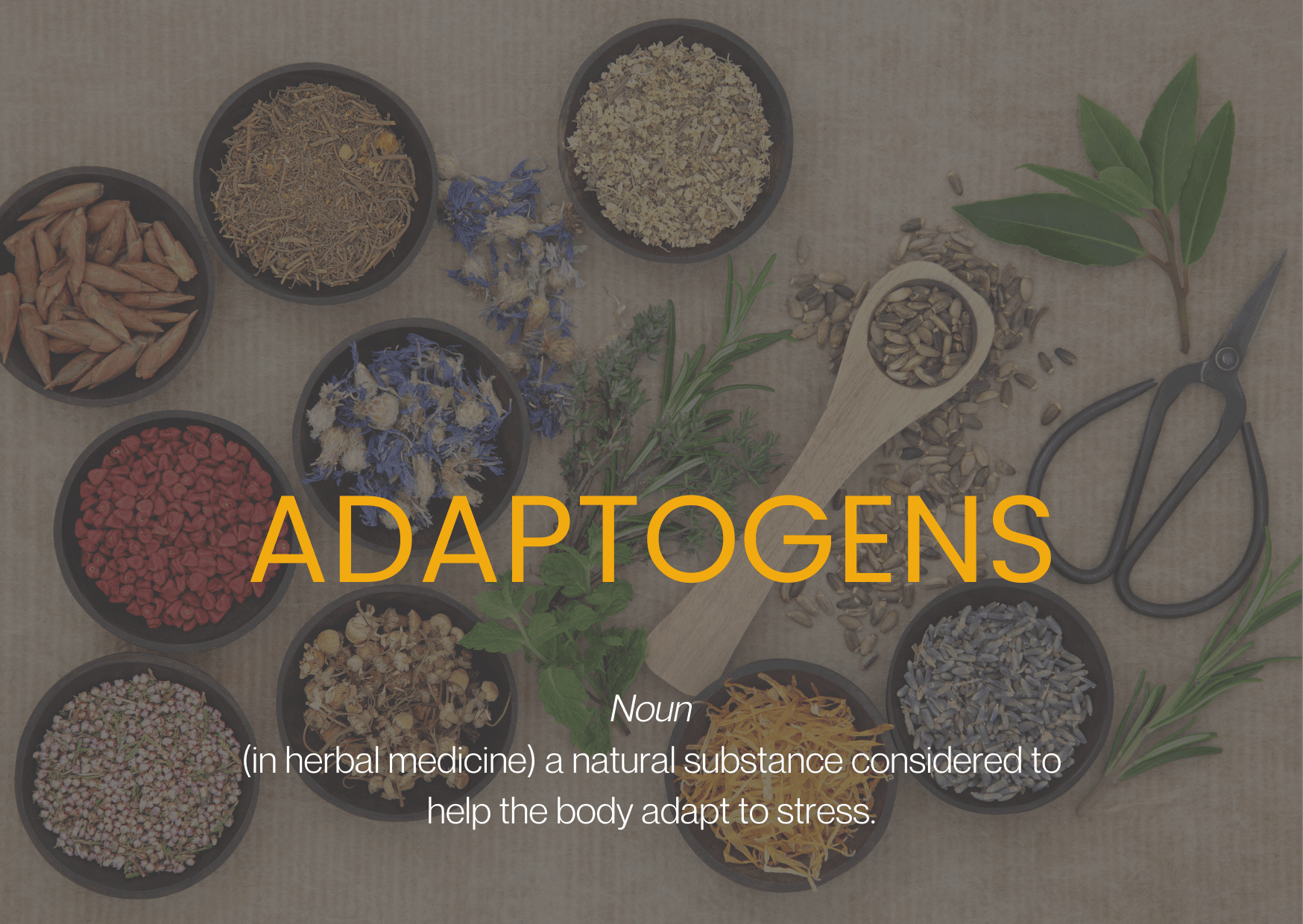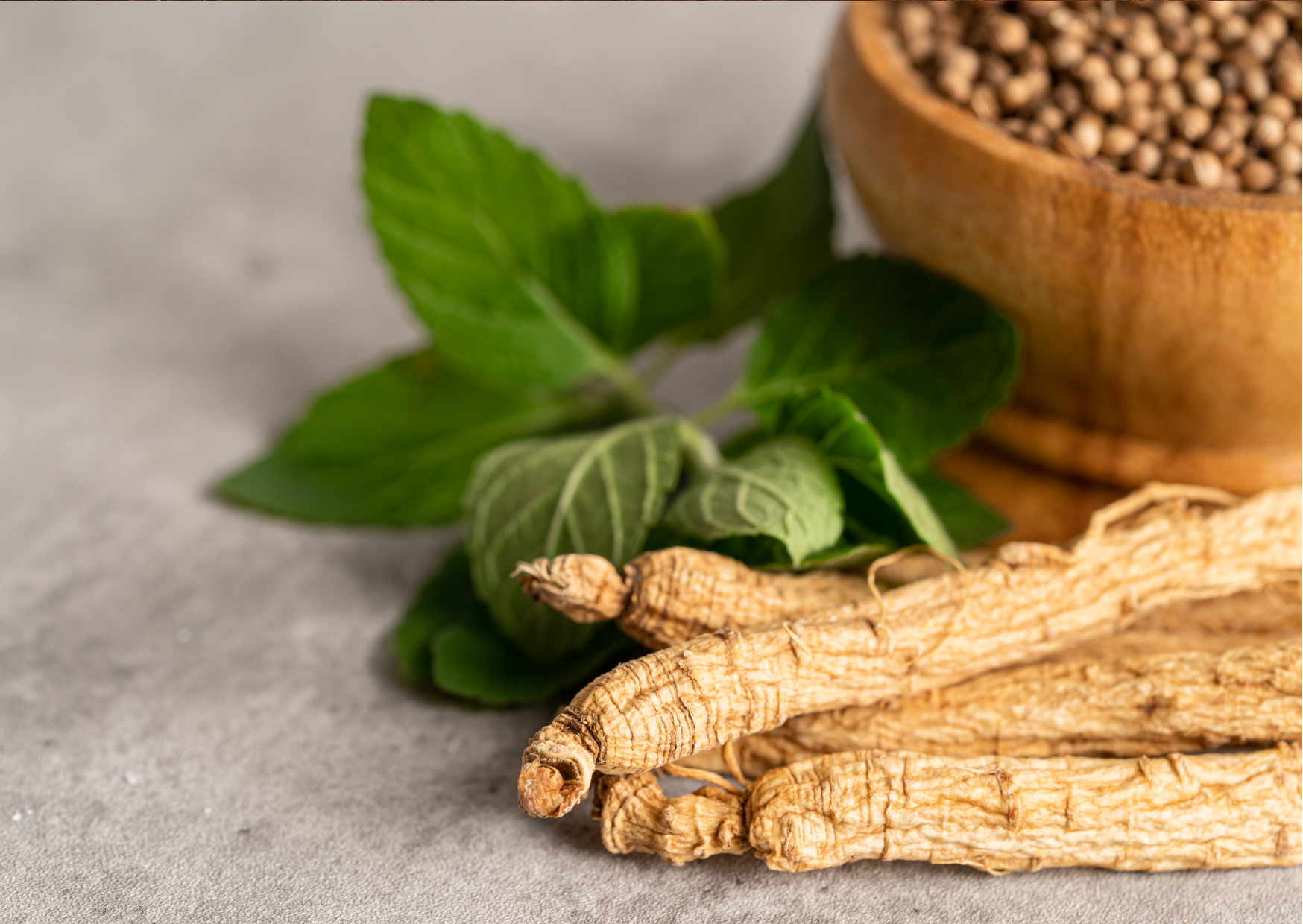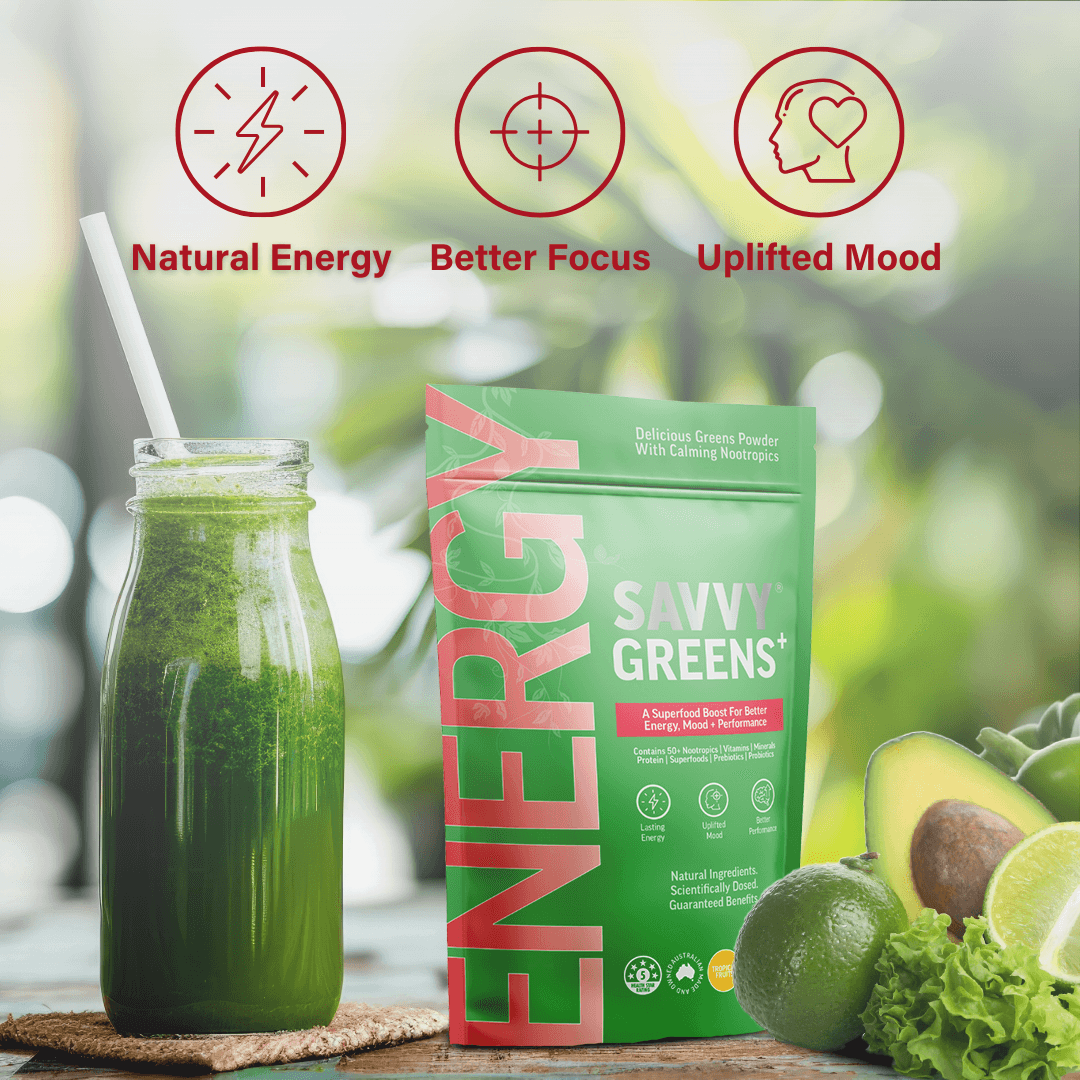
Adaptogens – Can They Relieve Stress?

Adaptogens – Can They Relieve Stress?
Article at a Glance
|
Stress, unfortunately, is something no one can avoid. We all have stress in our daily lives. Sometimes it’s helpful when it pushes us into ‘top gear’ when we are looking out for family and friends in certain situations, but mostly it’s coming from work-related stress.
So what is the best way to handle stress? There are many prescription and over-the-counter medications that claim to relieve stress and promote calmness, however they do have many side effects, such as fatigue, nausea, agitation and drowsiness. [1]
A natural way to relieve stress is through adaptogens. Adaptogens are natural ingredients and herbs that are proven to have therapeutic effects. [2]

What is an Adaptogen and How Does it Work?
The term adaptogen was first used in 1940 by N. Lazarev, a scientist from the USSR. He proposed that any herb that can non-specifically enhance the human body is a plant-originated adaptogen. These adaptogens have three main characteristics. They must be non-specific and must assist the human body in resisting a wide range of physical, chemical or biological stress. Secondly, adaptogens must maintain homeostasis in humans. The herbs should be able to offset and resist physical disorders caused by external stress. Lastly, adaptogens must not harm the normal functions of the human body. [2]
A more recent study by an American Herbal Doctor, Yance, proposed that adaptogens can improve our ability to recognize, respond, recover, and restore or regenerate. He divided adaptogens into three categories, primary, secondary and companion adaptogens. [2]
Adaptogens work at a molecular level by regulating the parts of the brain that are involved in stress response; they stabilise the hypothalamic, pituitary, and adrenal glands. When the body encounters stress, it goes through three phases, the alarm phase, the phase of resistance and the exhaustion phase. [3]

The Human Body and Stress
When the mind and body encounter stressful situations the hypothalamus alerts the body to release the stress hormones. These stress hormones are also responsible for the fight or flight response of the body. This response protects and prepares the body to respond quickly in an emergency, however, when the stress response is constantly triggered it can cause harm to physical and mental harm. [4]

Some of the Different Adaptogens and Their Benefits
Ashwagandha
Ashwagandha is an ancient root with many medical benefits. Ashwagandha root has a 6000-year-old history and has been used for medical treatment throughout the years. Some of the benefits of Ashwagandha include stress relief, improved focus and concentration, fewer symptoms and reduced risk of anxiety, depression and panic attacks. As it has so many benefits, many consider Ashwagandha the “King of Adaptogens”. [5] A 2019 study [6] investigated stress in adults. Some were given Ashwagandha while others were given a placebo. The participants with the Ashwagandha had significantly reduced stress levels and improved sleep, while those with the placebo saw no change or increased stress levels.
Rhodiola Rosea
This is a plant, also known as the golden root, used in traditional Asian and European medicine. Rhodiola Rosea [7] is well known for its healing properties, especially stimulating the nervous system, enhancing work performance and concentration and decreasing depression. It also reduces fatigue and is a mood booster. Rhodiola Rosea is known to improve learning and memory and enhance focus and Cognition. [8] 
Panax Ginseng
Panax Ginseng is the most researched adaptogen and has many benefits. It is known for regulating and creating balance within the body. Ginseng has many different variations, Panax Ginseng is also proven to reduce the risk of depression, anxiety and stress. Traditionally, ginseng was used to protect the nervous system, recent studies have shown that ginseng has many psychological and mental benefits as well. It can assist with the prevention of degenerative brain diseases such as Alzheimer’s and Dementia. Ginseng also has a neuroprotective effect on the brain. This is useful in the prevention of depression and can improve cognition and memory. A study [9] investigated the healing properties of Korean Red Ginseng Extract (Panax Ginseng) on the brain and inflammation. It was concluded that Panax Ginseng reduces inflammation caused by stress effectively and may also be a useful immunosuppressant agent in the treatment of atopic dermatitis. [10]
Cordyceps
Cordyceps is a Chinese fungus and is used as a tonic and medicinal food in Asia. It is mainly known for it’s anti-aging properties, but more recent studies have shown a testosterone boost as well as reduced stress and cholesterol levels. [11]

Wrapping it up
There are many different adaptogens and each has their own benefits. Ashwagandha, Rhodiola Rosea, Panax Ginseng and Cordyceps are effective at reducing stress, anxiety and depression. Adaptogens may not be the cure for all, but the side effects are lower than over-the-counter and prescription medication. Many studies have shown the benefits and safety of adaptogens for humans in controlled doses.
References:
[3] Adaptogenic Herbs: List, Effectiveness, and Health Benefits
[4] The Effects of Stress on Your Body
[5] What Are Adaptogens and How Do They Work?
[7] Rhodiola rosea: A Possible Plant Adaptogen
[9] Anti-inflammatory and Anti-oxidative Effects of Korean Red Ginseng Extract in Human Keratinocytes
[11] Bioactive principles from Cordyceps sinensis: A potent food supplement – A review








